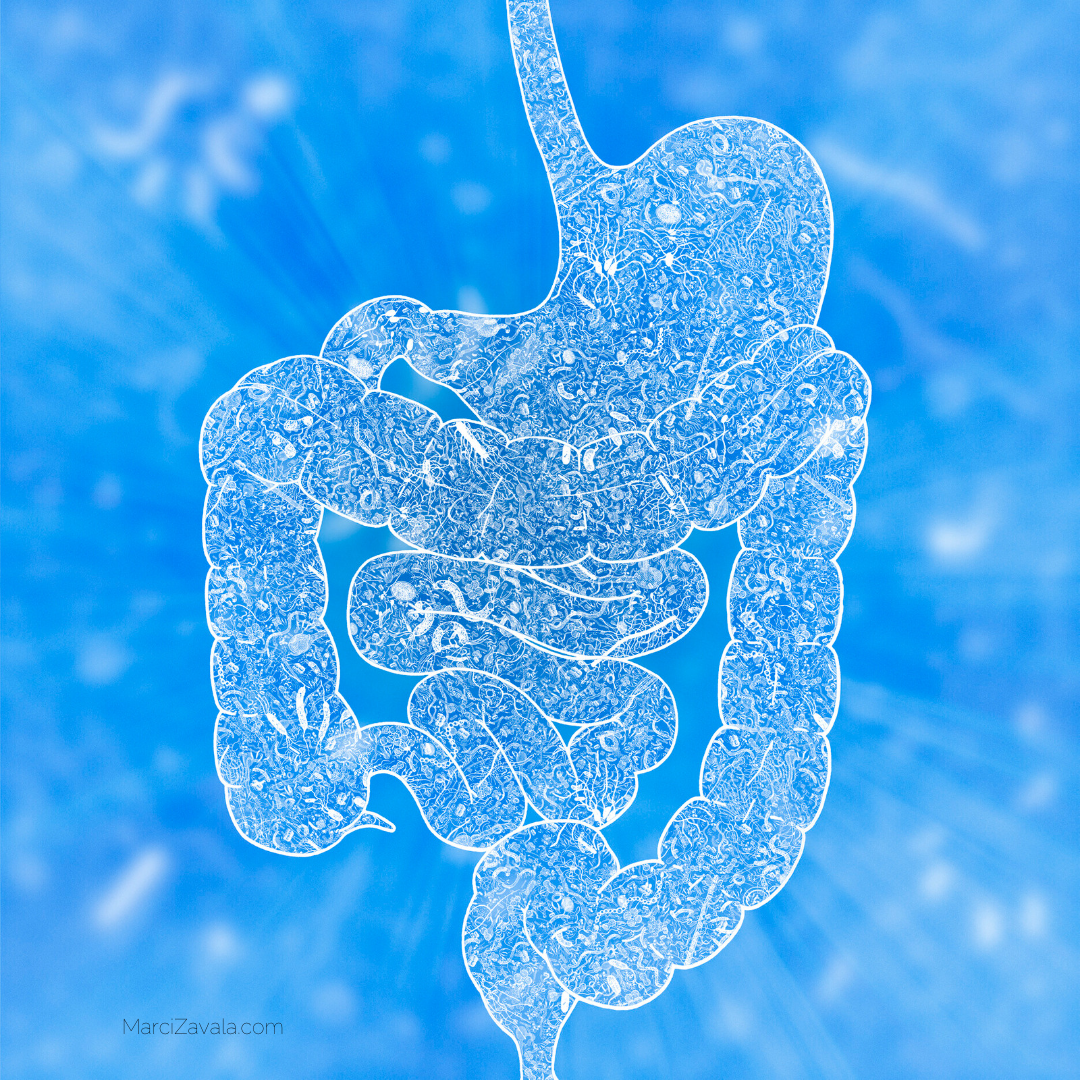Your microbiome may be the gatekeeper to all of your health concerns. It impacts our body’s physiology unlike anything else. When your personalized microbiome is healthy, you are healthy. When it suffers, you suffer.It contributes to brain health, digestive health, energy stores and expenditures, waste …
Your microbiome may be the gatekeeper to all of your health concerns. It impacts our body’s physiology unlike anything else.
When your personalized microbiome is healthy, you are healthy. When it suffers, you suffer.
It contributes to brain health, digestive health, energy stores and expenditures, waste removal, immunity strength, and more.
Every person’s microbiome is unique to them.
Think of your microbiome as a teeny tiny city. These cities are everywhere on planet YOU – on your skin, in your mouth, in your intestines, under your nails… Literally everywhere, including places scientists are not privy to yet.
It is believed our microbiomes adapt to current circumstances. Pregnancy will change the microbiome significantly to preserve the growing baby. Autoimmune diseases and chronic stress can rapidly deteriorate the microbiome in the gut which affects every system in our body. Food, alcohol, and hydration all have the potential to positively or negatively impact our intestinal microbiome.
Our intestinal microbiome affects every organ and system in our body. Some experts say a direct connection between the health of our intestinal microbiome and every part of our body exists. Some microbiome-organ systems are more influential than others – our brain, endocrine system (hormones), and skin, for example.
Fortunately, we have quite a bit of control over our intestinal microbiome.
Sugar is the primary substance that can influence, damage, and inflame our whole body – especially the gut microbiome.
When sugar is consumed at the recommended governmental allowance – 50 grams per day – it’s already too much. WAY TOO MUCH!
Sugar causes inflammation.
Inflammation disrupts hormone regulation.
6 Important Hormones
-
Insulin
-
Melatonin
-
Estrogen
-
Testosterone
-
Cortisol
-
Thyroid
Each hormone needs a specific backbone:
-
Steroid hormones – cholesterol
-
Thyroid – iodine & tyrosine
-
Amine hormones – modified amino acids* (protein from animals, not plants).
-
Peptide & Protein hormones – chains of amino acids
-
Eicosanoid hormones – fatty acids
Examples of the above hormones
-
Steroid: glucocorticoids, mineralocorticoids, androgens, oestrogens and progestogens
-
Thyroid: T3 (active form) and T4 (inactive form) are two important players
-
Amine hormones: norepinephrine and epinephrine (think adrenaline)
-
Peptide & Protein hormones: GH, FSH, Oxytocin (think growth and regulation of muscle growth as one example)
-
Eicosanoid: locally acting hormones like prostaglandins (which help regulate inflammatory responses)
Each of these hormones has a specific goal, role, and route.
Minerals in which endocrine organs/glands are dependent upon:
-
Thyroid – Iodine
-
Prostate – Zinc
-
Pituitary – Manganese
-
Pancreas – Chromium
-
Gonads – Selenium
-
Adrenals – Copper
(*Please do not supplement any of these without testing and guidance)
When digestion is disrupted, faulty, or overtly malfunctioning your hormones are negatively impacted.
Digestion really is a key component to overall health. In this article, I review the process of digestion and the possible ramifications on our body as a whole. Hormone production, regulation, and removal are all affected by digestion.
If your liver is struggling to detoxify (break down and remove) hormones that you are producing, those receptor sites aren’t available for a fresh set. In women, this can present itself as estrogen issues. In men, this can look like poor testosterone regulation. These are just 2 examples of many issues that arise when the liver does not properly conjugate and remove hormones.
Excess sugar bogs this down. Alcohol consumption bogs this down. Unresolved stressors bog this down. Inappropriate supplementation BOG THIS DOWN!
Where do you start?
Reduce or eliminate all added sugar and preservatives. Eat a whole food nutrient-dense diet.
Eat like it was the 1940s – off the land and from the land. Hunt, garden, get outside, and enjoy the sun.

Comments